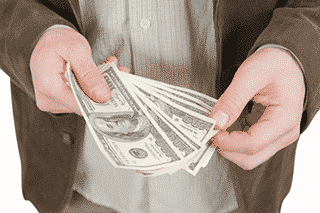
Cash emergencies happen to the best of us. One way to mitigate the risk of a cash crunch is to do what financial gurus call “paying yourself first.” This means that you spend time finding ways to creatively put away money into some sort of a savings account without ever noticing the money being diverted away. Putting a little extra money away each month can add up to huge savings later on down the road. Then when an emergency happens, just withdraw the money from that savings account before pursuing other short-term loan options.
If you get a regular paycheck each month, then set aside a certain percentage of that paycheck for this emergency fund. This percentage can be as small as 1%, and can still make a huge impact when factoring in compounding interest. Most people never notice the loss of 1% from their regular paycheck, but they will certainly notice the cash back from that 1% later on down the road.
Cash in on Change
Another easy way to save is to keep track of all of your loose change. If you are paying with cash then just pay with dollar bills and save the coins. Put the coins in a jar and then periodically take that jar to the bank to deposit it in a savings account. A lot of banks today even offer a free change counting machine for their customers, so all they have to do is bring their change jar in and let the machine count and sort their change for them.
Avoid Extra Fees
If you use your ATM card to get cash out of the machine, then make sure that you pay attention to fees. Try to only use ATM of your bank so that you avoid the ATM fees for withdrawing money. If you need money and do not have you bank’s ATM machine nearby, then look for stores that offer cashback on purchases. Today practically all grocery stores, drugstores, and even the post office offer cashback on any purchase. There is no charge for this cashback, so it is like getting a free ATM withdrawal.
When you finally pay off a loan, do not just redirect that money back into the normal expenses. Continue making those same payment amounts after you have paid off an account. You can use that money to add to other payment accounts or take that money and pay it into a savings account. This will ensure that you continue to live within your means and help you to pay yourself while you are at it, as well.
Finally, do not reward yourself with any cash windfalls. If you receive a surprise cash payment for something, then do not just spend it frivolously. You were already living well without that cash, so just take that money and put it away in savings. If you feel that you must give yourself a treat for all of your hard work, then that is ok too, but remain moderate, and try to save some if possible. Your unexpected cash windfall will turn into a bigger windfall.

